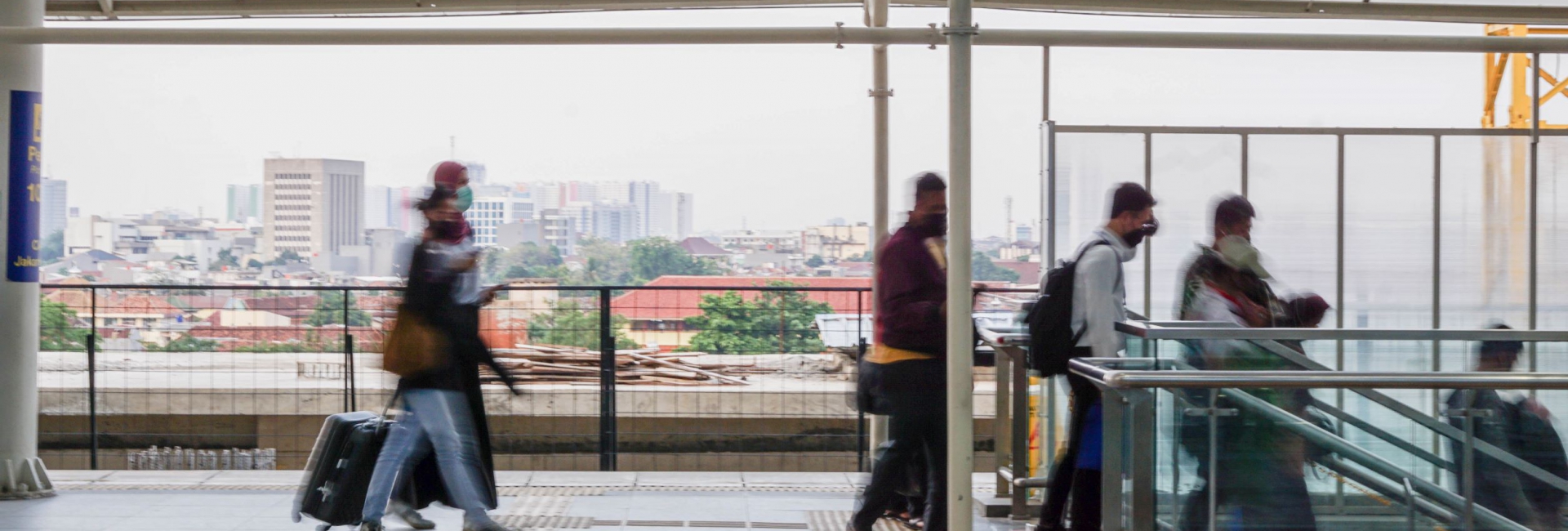The COVID-19 global pandemic has caused the world’s economy to slow down, and Indonesia’s economy is not an exception. This economic slowdown results in the decrease in employment opportunities and the large number of furloughs or layoffs in 2020. According to the reconciliated data from the Ministry of Labor and Employment Social Security Agency (BPJS Ketenagakerjaan) in May 2020, 1.7 million workers were affected by the COVID-19 pandemic. A study by LIPI (2020) shows that the laid-off workers were mostly youth (15–24 years old). The sectors with the most laid-off employees were construction, trade, restaurant, and accommodation services. A study by the World Bank (2020) also shows that 24% of the respondents were laid off by the end of May 2020, and most of them worked in the manufacturing, construction, and transportation sectors, and as warehouse staff. Meanwhile, 64% of them had to have their salaries cut. Moreover, a number of workers in the service sector (46%) switched to agriculture sector. Workers who graduated from vocational high schools and worked in urban areas are the most significantly affected by the COVID-19 pandemic.
This trend continued until the end of 2020. Based on Sakernas data from August 2020, 29.12 million working age population were affected by the pandemic, with 2.56 million people losing their jobs, 0.76 million people stopping looking for a job, 1.77 million being temporarily unemployed, and 24.03 million workers having their work hours cut. The economic slowdown due to the COVID-19 pandemic also put a stress on the open unemployment rate (OUR) up to 7.07%, meaning that 9.77 million people are unemployed. This high OUR is still dominated by vocational school graduates at 13.55%. Compared to 2019, the proportion of informal workers rose 4.59% to 60.47% or 77.68 million workers. The informal sectors that saw the highest increase in the number of workers are farming, forestry, and fishery with 2.7 million workers and wholesale and retail trade with 1.3 million workers. The process manufacturing and construction sectors witnessed the biggest drop in the number of workers, notably the formal workers, with 2.5 million workers losing their jobs.
In 2021, Indonesia’s economy is predicted to improve as the vaccination program and the National Economic Recovery (PEN ) stimulus begin to roll out. The fact that some regions still records a high number of COVID-19 cases, however, is a major issue which hampers this economic recovery. Moreover, the implementation of health protocols and the restriction on people’s movement to suppress the number of COVID-19 infection cases are expected to cause changes to the pattern of the creation of employment opportunities in Indonesia. Taking these facts into consideration, the Directorate of Labor Affairs has assigned SMERU to conduct a study on the impact of COVID-19 on the creation of sectoral employment opportunities.
To identify the pattern of creation of sectoral employment opportunities in the future as a result of the COVID-10 pandemic. The study will serve as the foundation to formulate short- and mid-term plannings in employment field.
- Desk study or data and information analysis based on the primary and/or secondary data, including the existing literature studies.
- Field study by visiting and/or holding a series of consultative meetings with related parties.
- Analysis study of the data obtained from the activities above.



